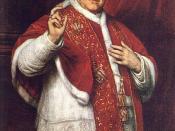The New Reading Public
In 1850 about half the population of western Europe and a much higher proportion of Russians were illiterate. That situation changed during the next half century.
Advances in Primary Education
The attack on illiteracy proved most successful in Britain, France, Belgium, the Netherlands, Germany, and Scandinavia, where by 1900 approximately 85 percent or more of the people could read.
The new primary education in the basic skills of reading and writing and elementary arithmetic reflected and generated social change. They also hoped that literacy might help the poor to help themselves and might create a better, more productive labor force.
They soon discovered that much of the education that led to better jobs and political influence was still open only to those who could afford it.
Reading Material for the Mass Audience
Advances in printing and paper technology lowered production costs. The number of newspapers, books, magazines, mail-order catalogs, and libraries grew rapidly.
Other publishers produced newspapers with specialized political or religious viewpoints. Probably more people with different ideas could get into print in the later nineteenth century than ever before in European history.
Because many of the new readers were only marginally literate and still ignorant about many subjects, the books and journals catering to them often were mediocre.
Science at Mid-Century
In about 1850 Voltaire would still have felt at home in a general discussion of scientific concepts. The basic Newtonian picture of physical nature that he had popularized still prevailed.
Comte, Positivism, and the Prestige of Science
The French philosopher Auguste Comte (1798-1857), developed a philosophy of human intellectual development.
Comte thought that positive lows of social behavior could be discovered in the same fashion as laws of physical nature.
Popularizers, such as Thomas Henry Huxley (1825-1895) in Britain and Ernst Haickel (1834-1919)...



Study notes...
Once again, another set of thorough adn well written study notes by ccmustangs2001. These are quite helpful as they are written on a common classroom topic.
Great work, ccmustangs2001.
5 out of 7 people found this comment useful.